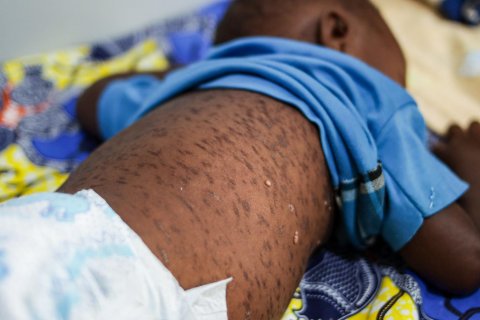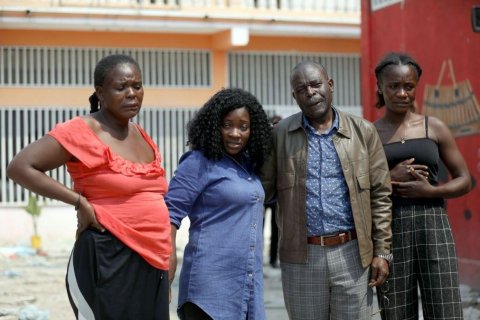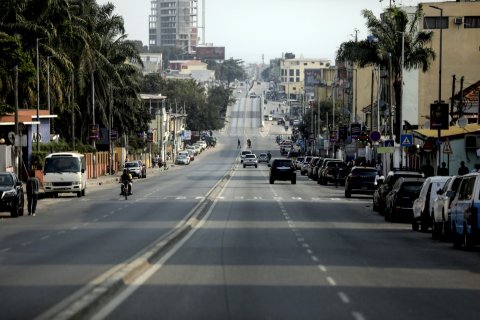The SPCB CCO in Huíla province was inaugurated this Wednesday, FRESAN said in a statement sent to VerAngola, also informing that the installation and equipment of this centre was supported by FRESAN (Strengthening Resilience and Food and Nutrition Security in Angola), which is a "Government programme with funding of 65 million euros from the European Union, co-managed by Camões – Institute for Cooperation and Language, I.P., FAO – Food and Agriculture Organization of the United Nations, UNDP – United Nations Development Programme, and the Vall d'Hebron Scientific Research Institute".
The aim of this centre, which was installed in the building of the Huíla Provincial Civil Protection and Fire Brigade Command, is to strengthen the capacity to respond to extreme phenomena, with particular attention to drought.
"The CCO aims to strengthen the region's institutional and technical capacity to deal with extreme phenomena linked to climate change, particularly recurring episodes of drought. It was installed in the building of the Provincial Command for Civil Protection and Firefighters of Huíla (the latter recently refurbished), with the support of FRESAN/UNDP, and was equipped with equipment and technical services that ensure integrated management and a more agile, effective and coordinated response to emergencies", the note reads.
On the occasion, Rosário Bento Pais, ambassador of the European Union in Angola, said that when the project began they had "practically nothing", and the facilities were "all renovated".
"The facilities have all been renovated. When the project began, we had practically nothing here. And today, we have buildings with decent and suitable conditions for workers and with all the technical services necessary to ensure operational prevention of the disasters that affect this region", said the diplomat, highlighting that it was "a great satisfaction to witness the creation of this center, thanks to the commitment of all the teams involved".
In turn, João Neves, coordinator of the FRESAN Program at UNDP, explained that "in order to operationalize the HF Radio System, it was necessary to rehabilitate an antenna at Cristo Rei, build a shelter and ensure the electrical connection to the antenna".
"We already have this communications system in place, allowing us to communicate with the municipal commands of Lubango, Chibia and Gambos. The intention is also to communicate with local community disaster risk reduction groups, which are essentially the basis of the rapid alert system. Both community groups in the most vulnerable areas can communicate directly with this CCO, and the team can also communicate directly with these groups. Also because, under the FRESAN, these groups also receive first aid kits for immediate response", he added.
João Neves also highlighted that the FRESAN programme ensured the training of people in disaster risk management: "within the scope of the creation and operationalisation of the CCO, FRESAN ensured the training of human capital in disaster risk management (DRM), allowing us to have more capable staff and better response to emergencies and environmental catastrophes. It was a long process, but we are very pleased to finally see this centre fully operational".
According to the statement, "FRESAN/Camões, I.P. and FRESAN/UNDP support – through training, technical advice and equipment – the Civil Protection and Fire Service and similar entities with the aim of promoting response and recovery in situations of disaster and extreme weather events".
It should be noted that Huíla is not the only province with a centre of this kind, as there are also some in Cunene and Namibe.
"In addition to the province of Huíla, those of Cunene and Namibe also have Operational Coordination Centres installed and in operation, strengthening the capacity and skills of local authorities to deal with extreme weather events such as drought or floods, and increasing the resilience of rural communities", says the note, which also adds that "with this intervention, FRESAN/UNDP intends to: enable CCO rooms to be integrated centres with technologies available to technicians; incorporate technology in CCOs for access to local and remote data, using satellite systems, remote sensors, among others; maintain at least one database server and a communications centre in each province; allow the creation, editing and printing of general maps, of risk areas or information, using GIS - Geographic Information Systems; maintain at least one crisis room ("war room") operational, equipped with a plasma screen, digital projector and quality internet access".







